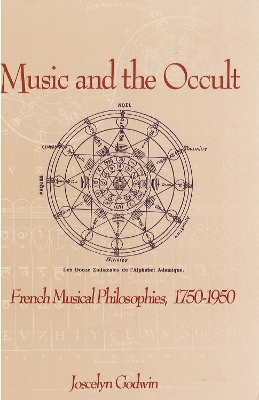Eastman Studies in Music
1 total work
v.3.
This book is an adventure into the unexplored territory of French esoteric philosophies and their relation to music. Occultism and esoterism flourished in nineteenth-century France as they did nowhere else.
The book beginswith the anti-Newtonian 'colour harpsicord' of Péere Castel, and closes with the disciples of Rene Guenon and their fierce anti-modernity. The major forces in between - Fabre d'Olivet, Charles Fournier, Wronski, Lacuria, Saint-Yves d'Alveydre, and their disciples - were all at odds with the world. They were truly "Renaissance men" ranging over the whole field of learning and not shying away from the enigmas that beset the human condition. For them, music was a blend of science and art that could bring insight into the cosmic order. Theirs was a "speculative music" in the tradition of Pythagoras, Plato, Ficino, and Kepler, which is generally thought to have died with the coming of the Enlightenment. On the contrary, as this book shows, it flourished more vigorously than ever.
The book beginswith the anti-Newtonian 'colour harpsicord' of Péere Castel, and closes with the disciples of Rene Guenon and their fierce anti-modernity. The major forces in between - Fabre d'Olivet, Charles Fournier, Wronski, Lacuria, Saint-Yves d'Alveydre, and their disciples - were all at odds with the world. They were truly "Renaissance men" ranging over the whole field of learning and not shying away from the enigmas that beset the human condition. For them, music was a blend of science and art that could bring insight into the cosmic order. Theirs was a "speculative music" in the tradition of Pythagoras, Plato, Ficino, and Kepler, which is generally thought to have died with the coming of the Enlightenment. On the contrary, as this book shows, it flourished more vigorously than ever.
